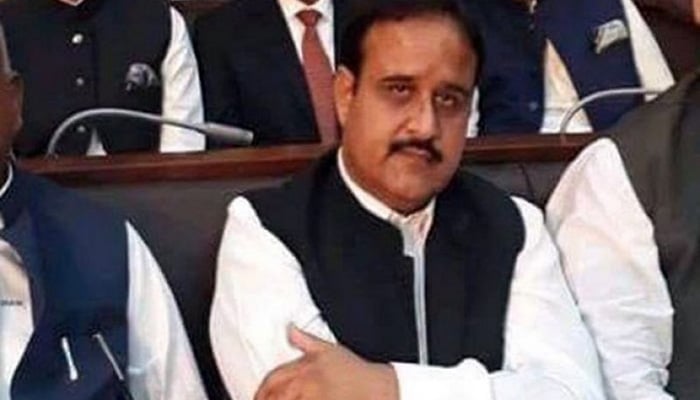Unarguably, the biggest question, post the July ballot, was: who will be the next chief minister of Punjab? As the days went by, old and new names were thrown into the cocktail shaker. There were high-profile contenders, such as former provincial minister, Abdul Aleem Khan, and TV host-turned-politician, Fawad Ahmad Chaudhry. And then there were ones that required a little bit more digging for a profile. But none were as unremarkable as Sardar Usman Ahmad Khan Buzdar. Which is why his nomination by Imran Khan, chairman of the Pakistan Tehreek-e-Insaf (PTI), came as a shock to political wonks, and to Buzdar himself.
“I never even dreamt that I would be given the chance to become the chief minister,” he told Geo News.

On Friday night, soon after being elected the 22nd prime minister of Pakistan, Khan named Buzdar as his party candidate for the coveted slot in Punjab, the country’s most populous and politically important province.
Voting in the Punjab assembly will be held on Sunday, August 19. The 49-year-old has a clear path to victory. His party, the PTI, holds 185 seats in the 371-strong provincial assembly with the support of alliance partners.
But how and where did Buzdar come from?
The PTI's chief minister nominee is an advocate and a landlord by profession. Born in May 1969, in the tribal stretch of Dera Ghazi Khan in Punjab, Buzdar is the eldest of five brothers and sisters. While he received his early education from his family village, Barthi, he later enrolled at Multan’s Bahauddin Zakariya University for a masters in political science and then completed an LLB.
Sardar Fateh Muhammad Khan Buzdar, his father, served as a Grade 14 teacher at a local school, but soon took a liking for politics. He was elected to the provincial assembly three times from DG Khan – 1985-88, 2002-2007 and 2008-2013 – as a member of the Pakistan Muslim League-Q.
In the meantime, the younger Buzdar was also kick-starting his own political career. In August 2001, when Pakistan held local bodies election under General Pervez Musharraf, he managed to secure the position of nazim (local elected official) twice and stayed affiliated with his father’s party. But in the 2013 general polls, he contested for a provincial assembly constituency, from the Pakistan Muslim League-N platform, and lost.
In May, Buzdar switched parties again. Using the Janoobi Punjab Suba Mahaz movement, he and several other South Punjab members of national and provincial assembly defected from the PML-N to its rival PTI. On July 25, he won PP-286 (DG Khan) with over 26,000 votes.
In a video message, delivered late last night, Imran Khan said the advocate was chosen because he hails from the most impoverished area of Punjab. “These people have no water, no electricity, no hospitals. People there are living in the stone ages.” The village Barthi, in the tribal belt of DG Khan, is deprived of all basic facilities. The population of 300,000 has no access to clean drinking water, electricity, proper roads and neither does it have a single college. Even though uranium deposits were mined from the adjoining villages of Nanganai and Taunsa to give Pakistan its first nuclear bomb.
Khan further added that Buzdar does not even have electricity at his own home. As unbelievable as that may sound, it is true. His home in the tribal areas has no power like the rest of the homes in the village. But his family owns another house in the city of DG Khan, where his wife and three daughters live. That residence is equipped with basic utilities.
“When we found out about his nomination, we thanked God,” his brother, Muhammad Altaf, tells Geo News, “and we are very thankful to Imran Khan for the opportunity. We promise to work for the deprived people of our area.”
If elected, Buzdar will be named the chief minister of Punjab after Shehbaz Sharif, who was the longest-serving head of the province.


